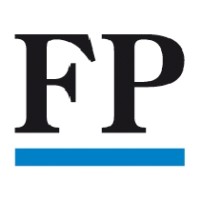The corona crisis has also tightened the reins in the district council. When a double budget was adopted for the first time in the Zwickau district, the district councils only needed 53 minutes for presentations, discussions and decisions at their meeting on Wednesday. There were times when the procedure took three times as long for a household that was only valid for one year. The fact that the € 850 million budget for the years 2021 and 2022 was decided in record time, not only because one fifth of the councilors were absent, but above all because of the fact that the political groups had agreed on one speaker each. In addition, they had refrained from pressing additional projects into the budget by means of amendments.
–
Financially, the district has seen better days. Finance director Mathias Hartung expects a total of 43 million euros in the next two years. The deficit is to be compensated with the available liquid funds. This is intended to avoid austerity measures, among other things, in investments or voluntary social benefits, at least for the next two years. However, the district treasury can no longer draw on a full reserve for a long time. While just under 47 million euros are still available in the current year, the amount will shrink to just under 7 million euros in 2022 according to current planning.
The discussion about the district levy, which usually recurs every year, does not take place this time. The assessment rate of 32.38 percent that cities and municipalities have to pay to the district will remain unchanged until the end of 2022. By withdrawing funds from the reserve, the budget is balanced even though the district spends more money than it earns. This enables further investments, for which 37 million euros are earmarked. For this, loans must be taken out. In the new budget alone over 15 million euros. After the credit burden of just over 30 million euros was halved by 2018, the district will be burdened with loans of around 36 million by 2025. The per capita debt will remain below 100 euros and thus within the permissible range, as Mathias Hartung said.
The district councilors wrote another task in the workbook for the district administrator: in future, he must report to the main committee every three months on the development of the budget. In the process, possible free funds should also be discovered, which in turn should then be used for investments.
Double budget: That’s what the groups say
Michael Luther (CDU): “They are not the nicest numbers.” Above all, the considerable deficit is very worrying. “But we have only a few adjustments,” he said. The hot one: save. “With investments, voluntary social benefits or with staff.” However, saving on staff, especially in the corona crisis, is the wrong signal.
Andreas Gerold (AfD): His group approved the budget, but “with a heavy heart and stomach ache”. “The speed with which we are using up our reserves is clearly too high,” he said. The constantly rising costs of youth and social welfare should also be considered.
Marina Salzwedel (Die Linke): For them, the question in the coming years is no longer “What do we want to afford?” But rather: “What can we afford?” She demanded a list of priorities for future investments and the implementation of the budget under constant control.
Gerhard Sunday (Greens) already sees the development of the district in danger. There is hardly any money available, especially for climate protection. “The district will not build a cycle path in the next two years,” he criticized.
Dorothee Obst (Free Voters) is not dissatisfied with the future budget. “Above all, we have a stable county surcharge,” she said. (nkd)
–


